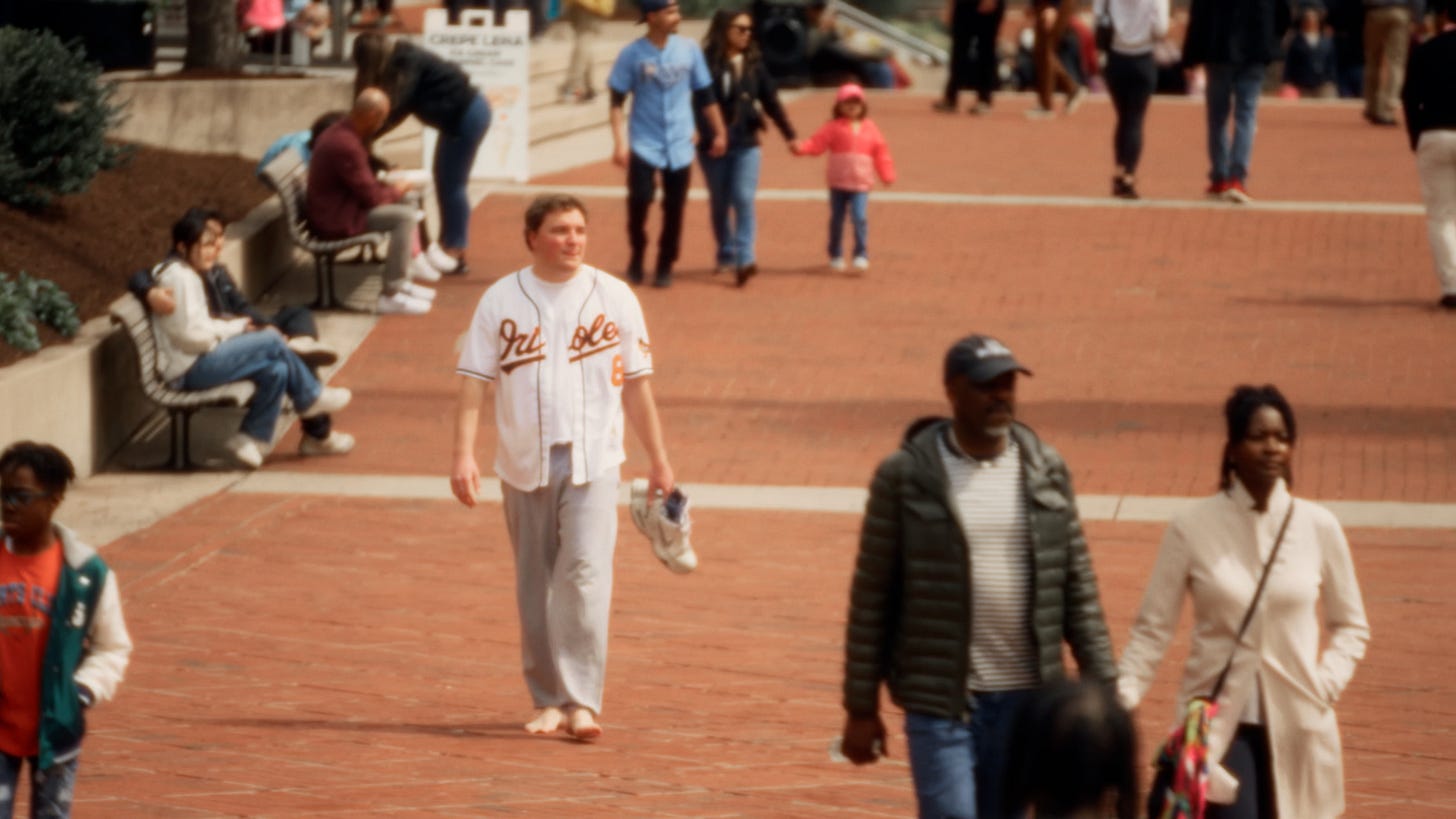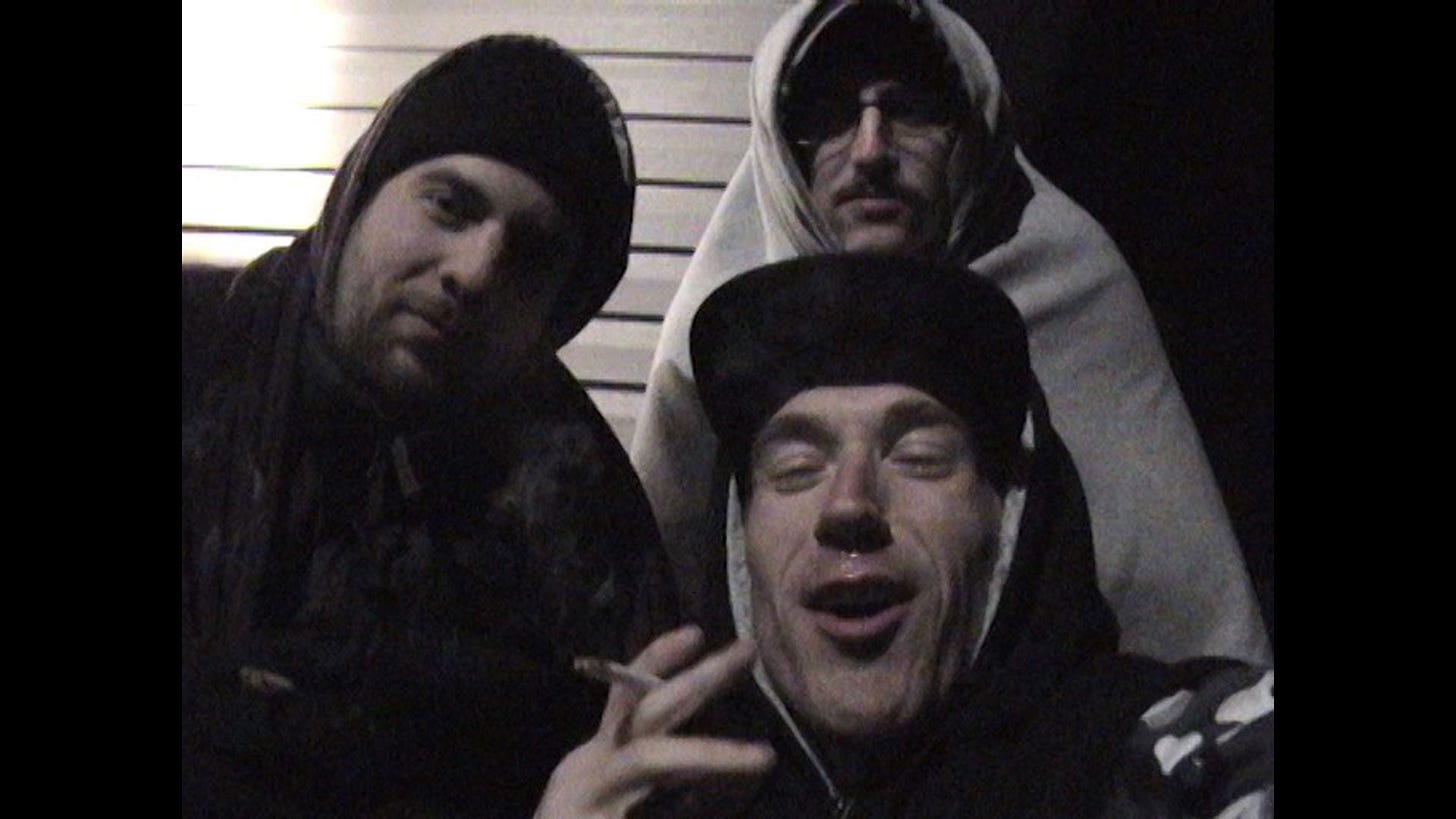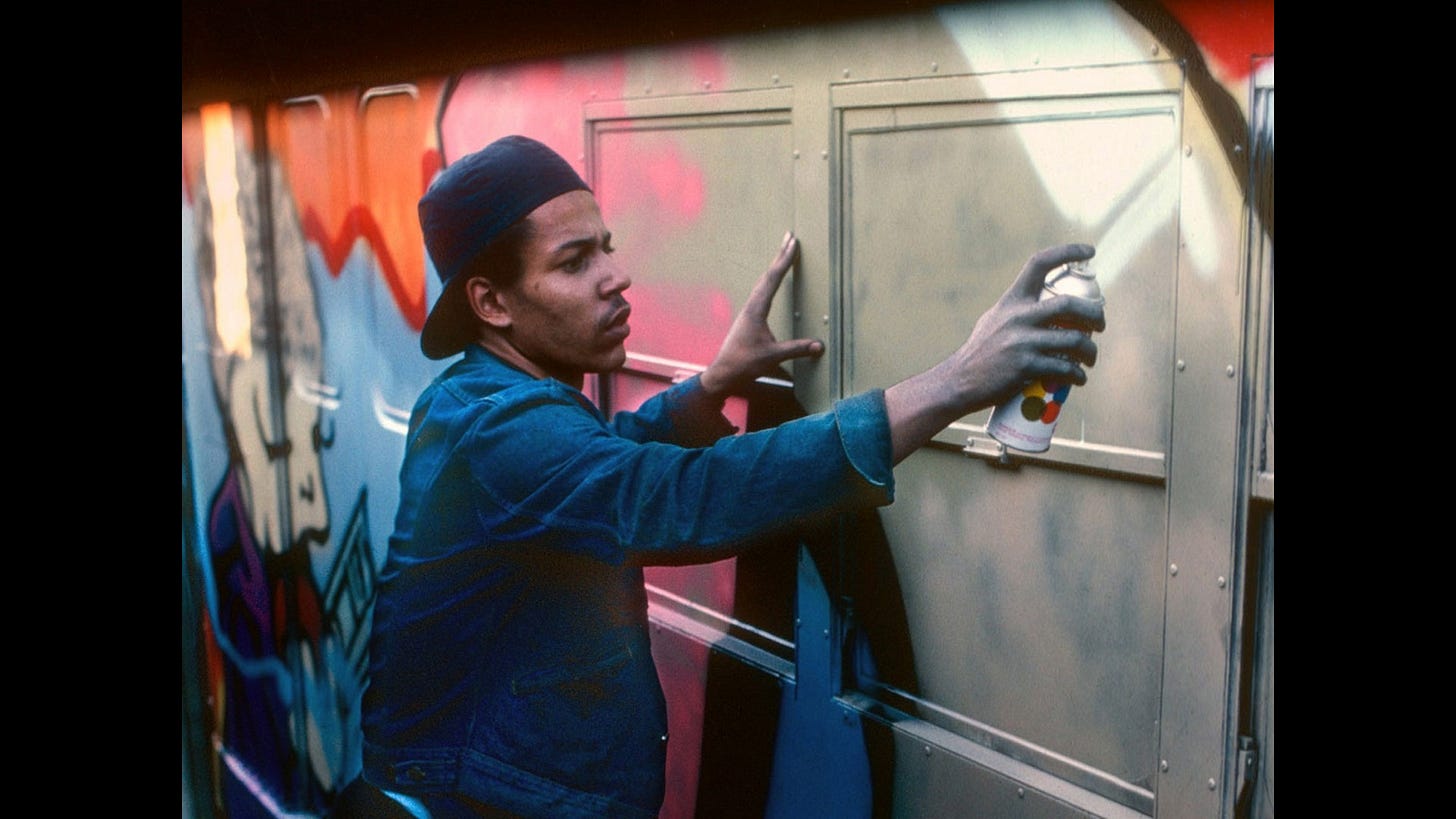2024 New/Next Film Festival: Reviews and Reactions Part I
From Opening Night to special screenings to short films.
BALTIMORE - The New/Next Film Festival has returned to Baltimore's historic Charles Theatre for what is now an annual gathering of filmmakers and audiences in celebration of great cinema. Originally conceived last year as a one-off response to the hole left by a hiatus announcement from the Maryland Film Festival, both festivals have returned in 2024. Now serving as a compliment to the city's film scene, New/Next is presenting over 100 films and filmmakers through the weekend.
Here's my diary chronicling the first half of my weekend's experiences, which includes features and shorts screened through Saturday afternoon. There's still time to buy single tickets for the festival's final day (today) - the rest of my coverage will drop right here on Feature Presentation tomorrow.
Messy (2024)
Messy is a neurotic sex comedy romp about a promiscuous love addict named Stella who moves to New York after a bad breakup, and her quest to find love and purpose - one disappointing date at a time.
Writer/director/actor Alexi Wasser premiered her debut film Messy to open this year's festival on Thursday night. Her semi-autobiographical story, one of moving from L.A. to New York in her ongoing attempt to become the next Carrie Bradshaw, sees her character Stella wade through awful guy after awful guy, each one worse than the last. Actors like Thomas Middleditch, Adam Goldberg, Dion Costelloe, Peter Vack, and many more play the rogues gallery of boyfriends, hookups, and stalkers.
In almost vignette fashion, she encounters guys who fall into k-holes on her bed or read her terribly uninspired poetry, all documentation of her work as, in her words, a "romantic anthropologist." But Sex and the City this is not, despite the supporting performance from Mario Cantone. "I'm so ready to be the Season 6 me," she groans to her new friends. When one of them tells her that she's much more in "pilot mode," she finds solace in a vodka cranberry.
But that is essentially what Wasser has done, made an extended pilot that doesn't sell a show but sells her. She's very funny, not afraid to be outrageous or naked (emotionally or literally), a clear student of comedy from Albert Brooks to Carrie Bradshaw, and, as this film shows, a talented filmmaker. I look forward to more.
Maryland Voices Shorts (2023-2024)
Seven short films.
Winter in Dog Years: The opening short is a partially autobiographical narrative about a dog walker who travels around the city one winter, listening to local news in the car while finding herself in the neighborhoods where those crimes and conspiracies are taking place. Using the dog updates and messages she sends on the Rover-like app as noir-inspired narration, the film has pulp fiction aspirations. Director Marc Baker said in the Q&A that his next move is to make this into a feature and I’m intrigued enough in this proof-of-concept to see what happens next.
Tommy’s Toenails: I have to be honest and admit I’m not exactly sure what this 11-minuter was going for, but director Jake Binstock seemed hard-pressed to explain it afterward, so I don’t feel out of place. Shot for roughly $100 over one weekend and completely reconfigured in the edit, Jake cast his friend Tommy to play Tommy in a short simply explained in the program with the phrase: A former athlete attempts to clip his toenails. And that he does, underscored by a Baltimore Orioles game and a Pharoah Sanders song that only seems to have one variant lyric. Nevertheless, the crowd enjoyed it.
Ben in Bloom: Ben was raised by a mother they swear wanted to raise a queer kid because she knew she could provide that special love and care, particularly in their little sliver of Bucks County, PA, a battleground portion of a battleground state and the ground zero of what Ben calls national electoral “political warfare.” Unfortunately, Bucks County, particularly a conservative-majority school board, has little to no interest in providing that same care, instead opting to protect “the children,” and forgetting that LGBTQ youth make up a portion of those children. As a result, the Rainbow Room, a youth center dedicated to providing for that population, is there with resources and open mic nights to celebrate uniqueness and expression.
Black Wealth: It wouldn’t be a collection of local stories without at least one tale of squeegee boys, the hustlers who clean car windshields for a buck or five at red lights. I saw both a short and a documentary feature about this very thing at the last Maryland Film Festival four months ago and although this short doesn’t have scenes that take place on the same block as the theatre, we do get as close as around the corner. Heavily-Baldamore-accented Derwin squeegees for money, but his girlfriend Sierra is eight months pregnant with their daughter and he needs to transition from the lucrative but dangerous street work to a stable, clock-in, clock-out kind of job. It’s a story we’ve seen before, but Derwin and his family are charming enough that hanging out with them and hearing what they have to say about the city is time well spent.
From Block to Block: Anyone local knows the ongoing saga of the Red Line, the proposed light rail that would connect Baltimore east-to-west, communities purposefully underserved by public transportation. This short doc follows a protest demonstrated by the Baltimore Transit Equity Coalition in response to the lack of development in getting the thing off the ground. Former Maryland Governor Larry Hogan (the Republican now running for Senate is perhaps the closest human equivalent to a bug you just can’t catch to squash) killed the bill and current Governor Wes Moore hasn’t done anything legitimate to make it happen either. BTEC President Samuel Jordan is an interesting figure and surprised us all with a little sermon about the issue in the Q&A session.
The Periscopic Gaze: This documentary, directed by Kalima Young, sees Kalima tell the story of the lessons passed from her mother to her sisters as they learn that they, born several years apart, seemed to have been raised by a different woman. Using interviews with sisters Josie and Trish, collaged with digital watercolor paintings and family album photographs, it tackles issues of intergenerational trauma, the wisdom passed down by our ancestors, and what completes the phrase, “Mom always said…”
When Jacob Jinkers Came to Town: The collection ended with easily the silliest of the bunch, a parody of the “magic boy genre” (the filmmakers’ words) so prevalent in the '90s and discovered on VHS by the directing duo of Max Levine and Alex Schulman. Made to look like we’ve discovered a tape of our own (and yes, they’re hoping for a VHS release), it’s the story of a magically glowing boy who loses his special light. Earning the biggest laughs, it was the perfect way to close out.
Eephus (2024)
As an imminent construction project looms over their beloved small-town baseball field, a pair of New England Sunday league teams face off for the last time over the course of a day. Tensions flare up and ceremonial laughs are shared as an era of camaraderie and escapism fades into an uncertain future.
As the 2024 Major League Baseball season came to a close, memorials began to pop up for one of its thirty cathedrals - the Oakland Coliseum, home of the Athletics. Team owner John Fisher, at his core a ruthless businessman and emotionless bastard, is moving the team out of Oakland (and eyeing Las Vegas) because he wanted a shiny new ballpark. It’s been particularly painful for the team’s fans because the Coliseum, despite being one of the league’s oldest parks and the least flashy, was beloved regardless of its flaws. When asked about playing the final game before leaving town, A's outfielder Brent Rooker said, “There's no frills, right? I think a lot of stadiums have, whether good or bad...have kind of become less about the actual baseball game and more about an entertainment product. I think what The Coliseum offers is 'here's just a bunch of seats and here's a field and there's gonna be a baseball game happening' and that's why everyone is here and that's really cool."
To be honest, I thought that was a pretty lousy tribute. You like the ballpark because…it sucks?
That was until I saw Eephus.
The new film from director/co-writer Carson Lund tells the story of the final day of a rec league ballfield before it gets torn down and replaced by a school. There's nothing particularly special about this field that distinguishes it from any other, it's the same metal bleachers and well-used dugouts and patchy grass you can find anywhere. But it's special to these men, many now haggard and slow, because it's theirs and tomorrow it won't be.
In the post-screening Q&A, co-writer/actor Nate Fisher referred to the movie as "Field of Dreams in reverse," because instead of "If you build it, they will come," Eephus is more like, as he called it, "If you knock it down, they will all leave." And, just like with the spirits in Field of Dreams, Eephus speaks to the ghosts of the sport and what happens to them, to us, to the game, when the historic grounds are taken from us.
Baseball makes for the best movies. I write about them all the time and it’s not just because I’m both a baseball fan and moviegoer - it’s because baseball has the most interesting stories, the wackiest personalities (Red Sox fans will eye the eternal Spaceman Lee and the recently retired broadcaster Joe Castiglione), and the most kismet anecdotes. It's a game of symmetry, of perfection, of the difference of inches, and the baseball cinema canon reflects that conversation. But unlike the movies about our greatest players or champion teams or underdog stories, Eephus is about handwritten scorecards and chewing tobacco and old uniforms and beer bellies and smack talk and how hard it is to hit a good pitch but how much harder it is to hit a bad pitch.
"Why do they care so much?" asks a young girl watching the game. "Don't they have more important things going on?"
No, no we don't.
Rap World (2024)
In 2009, four friends living in suburban Pennsylvania document their attempt to record a world-changing rap album over the course of one eventful night.kje
Rap World was preceded by a short called The Bronze Dog, a meta auto-fiction perspective and chronology-jumping 20 minutes about a recent breakup. "I wrote it six months later, so I was over it by then," said writer/director Michael Bernieri in his Q&A. The audience laughed in disagreement. I laughed too.
It took me a very long time to get on the same wavelength as Rap World, a movie about four man-child losers who have the ignorance and audacity to think they can record an entire rap album in one night that'll make them rich and famous. I'm not familiar with actor/writer/director Conner O’Malley's work and the last time I saw actor/writer/editor Jack Bensinger in Baltimore was a few months ago when he bombed so hard opening for Sarah Sherman (who appears in the film!) that he closed the venue.
It wasn't until about halfway through the movie, after scene after scene of them getting distracted from actually writing any songs, when I realized oh, hanging out with these dumbasses is all this is ever going to be that I could just enjoy the dumbassery. In the Q&A, an enthusiastic audience member mentioned how political she found the film (there's obviously some sort of inherent commentary at play when one of the four white dudes yells out, "I'm the white Eminem!") and although I'm happy she found her own unique way into the film, my reaction was basically the polar opposite. In fact, I can't really think of a movie with any less to say than Rap World.
This is a movie made to look like it was edited on Windows Movie Maker (and perhaps it was - editor Bensinger admitted there was over 70 hours of footage and explained his editing process by saying something like, "I watched all 70 hours and I took out all the funniest parts and that's what's in the movie.”) where four guys rip cigs, write hilariously terrible raps ("I’m a superhero and I only kill teachers!"), play pranks on each other, watch Tropic Thunder, clean (?) their feet in the sink (at least that's what I think he was doing), and have a digital camera photoshoot with a gun that none of them should be touching.
Style Wars (1983)
A lively and richly observant account of the thriving culture of graffiti writers who were making their mark on the early-’80s New York cityscape.
Filmmaker Sam Pollard, longtime editor and the busiest documentarian you know, is a recent Baltimore transplant and has now presented multiple films at both editions of New/Next. Last year, I saw a revival screening of a film that he edited, Spike Lee's Bamboozled, and was looking forward to this year's screenings. Sam presented Friday afternoon's screening of his film Black Art: In The Absence of Light, but was unavailable for this (free!) screening of Style Wars, a documentary he edited more than 40 years ago.
In the early days of hip-hop culture, as rap music and breakdancing began to bomb (their term!) New York City, so too did graffiti writing. "They call themselves writers because that's what they do," says a narrator early in the film. "Graffiti writing in New York is a vocation," he explains. As a form of expression, they cover the city as if they're production designers for a Warriors sequel.
Opponents, like police officers and Mayor Ed Koch, see it as nothing but vandalism, the scowling half of a two-sided debate that hasn't evolved much in the years since this documentary. It's familiar stuff for those of us who live in cities like New York or Baltimore (my recycling can just recently became a canvas) and it's both giggle and eye-roll inducing that nothing has changed.
Writer after writer is interviewed (I was particularly struck by the frankness of a young man who admitted it was easy for him to steal spray paint from the store because he's not suspected as a white boy), punctuated by beats from Sugar Hill Gang and contrasted by the squawks of upset mothers and bothered neighbors. But it doesn't matter - nothing will stop them, from the mayor's crackdown to the quickly bastardized commercialization of the form in ritzy art galleries.
One boy, a constant presence in the film, is asked from behind the camera, "How long do you think you'll do it?"
He responds, "Until I'm finished."
The Dells (2024)
THE DELLS observes the clash between fantasy and reality faced by international student workers newly arrived in Wisconsin Dells, Wisconsin – the self-described “Waterpark Capital of the World.”
This feature documentary was preceded by a short doc called Home, which follows mother Brandie and her two boys living in an extended stay hotel. They lost basically everything in the pandemic and with more and more bills mounting, aren’t sure about how to get it all back. Still, she does the best she can to make their hotel room a home and give the boys the best life they can have. The 20 minutes with them just wasn’t enough, I have so many more questions the documentary just didn’t answer.
Each year, in tourist towns all across the country, countless international students are provided work and travel visas to experience all that the United States has to offer. Unfortunately for so many of them, they end up in Wisconsin working for minimum wage as waiters and henna tattoo artists and catchy t-shirt pressers. The Dells, in its US festival premiere at New/Next, tells the story of those students in Wisconsin Dells, Wisconsin, the “Waterpark Capital of the World" which boasts over 20 different parks on top of its roadside attractions, kitschy restaurants, and nature sites.
But the film quickly becomes not about any single or any group of these students (dozens are filmed and interviewed) or the visa experience, but about wealth inequality in the United States. Many students are working overtime for no extra pay, moving into their vans to avoid paying for lodging, and becoming increasingly frustrated with serving the types of families who wear matching neon shirts with silly phrases. "I don't think I like America very much," says one young lady, Ioana, who is only met with mockingly faux-jingoistic taunts from her friends.
"I'd like to think I enjoyed this," says another girl toward the end of the film. It's an obvious translation error as she stumbles through her second language, but I'd like to think it's a more purposeful phrasing than not. Many of them seem like they kind of enjoy it, finding charm in the American quirks that we're so tired of (and a handful of them do plan on returning or staying), but for most, it seems like their summer in the States will be more of a future dinner party anecdote than a life-changing experience.
Each plot synopsis and all photos are from NewNextFilmFest.com









